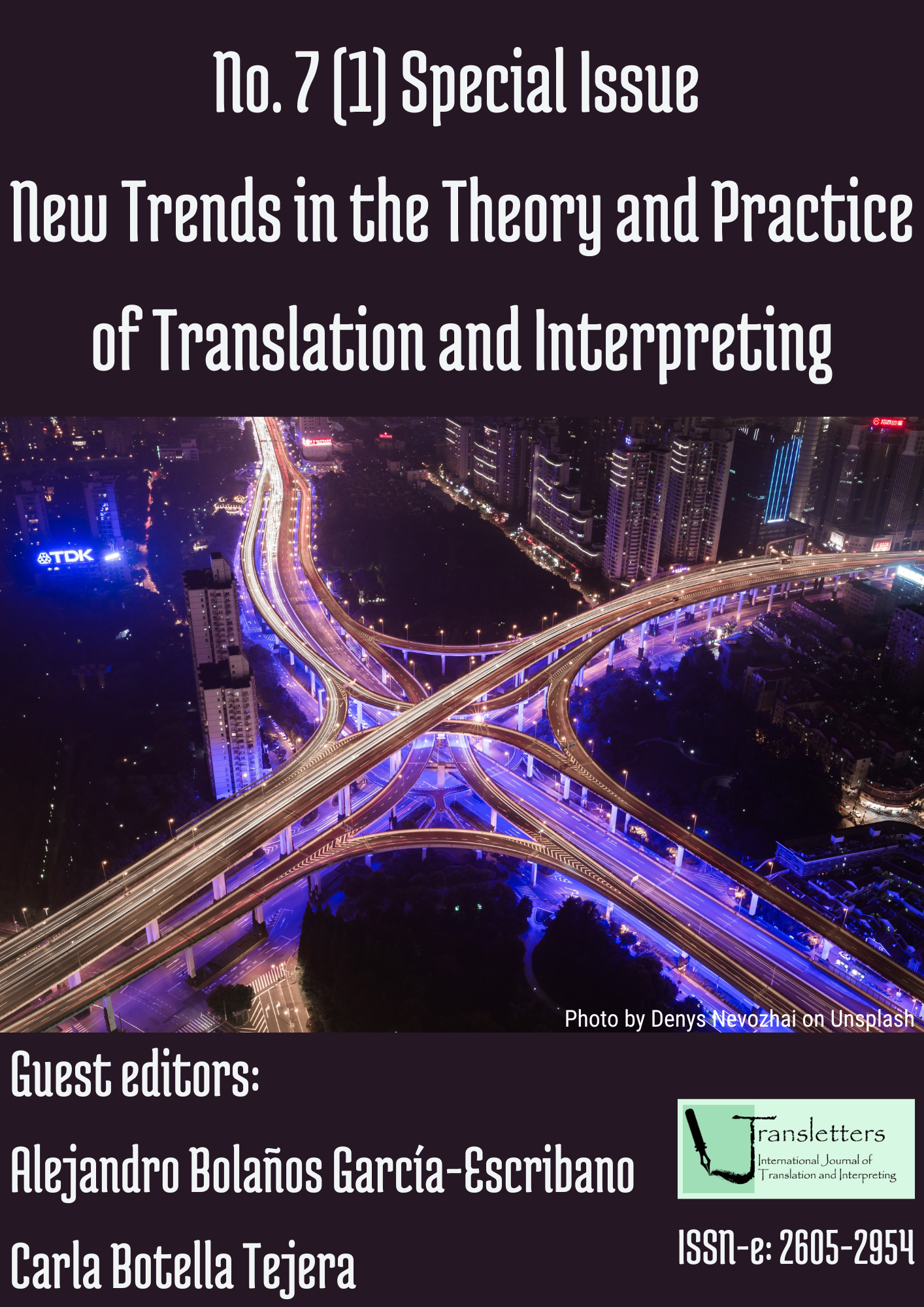Tourism Translation in the Light of Eco-translatology and Existing Translation Theories
Contenido principal del artículo
Resumen
The aim of this paper is to introduce the concept of Eco-translatology raised by Gengshen Hu (2013) and reveal its relationships with the following translation theories: Michael Cronin’s (2017) eco-translation, the Polysystem theory developed by Even-Zohar (1990) and Toury (1995), contextual dimensions proposed by Hatim and Mason (1990), and functional approaches studied by Reiss & Vermeer (1984) and Christiane Nord (1991/2005). These different approaches are then adopted to analyze Spain's official tourism website about Cordoba in the Spanish language and its translation into Chinese. Through comparison, we find that despite the similarities, the main difference between Hu and other Western translation theories is the subject of study. For Hu, it is the translator, and for the analyzed Western scholars, it is the translated text.
Descargas
Detalles del artículo

Esta obra está bajo una licencia internacional Creative Commons Atribución-NoComercial-CompartirIgual 4.0.
Política propuesta para las revistas que ofrecen acceso abierto
Los/as autores/as que publican en esta revista aceptan las siguientes condiciones:
1. Los/as autores/as conservan los derechos de autor y conceden a la revista el derecho de primera publicación con el trabajo licenciado simultáneamente bajo una Licencia de Atribución de Creative Commons, la cual permite a otras personas compartir el trabajo con un reconocimiento de la autoría del trabajo y la publicación inicial en esta revista.
2. Los/as autores/as pueden establecer acuerdos contractuales adicionales para la distribución no exclusiva de la versión publicada del trabajo en la revista (por ejemplo, enviarlo a un repositorio institucional), con un reconocimiento de su publicación inicial en esta revista.
3. Se permite y anima a los/as autores/as a publicar su trabajo previo a la versión final publicada en esta revista una vez aceptado (por ejemplo, en repositorios institucionales o en su sitio web), ya que puede dar lugar a intercambios productivos, así como a una citación más temprana y mayor del trabajo publicado (Véase El efecto del acceso abierto).

